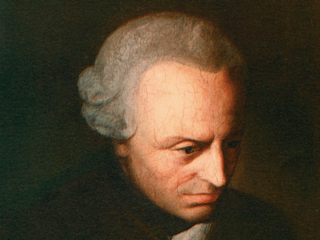
Meeting Time:
W 9:25a-11:15a
This course is dedicated to one of the greatest, and most challenging, works of modern philosophy: Immanuel Kant’s Critique of Judgment. Published in 1790, at the start of the revolutionary ferment in France, Kant’s Critique announced a revolution of its own: the book develops a bold new picture of the human being with its innate capacities for knowledge, freedom, and pleasure. Starting from the traditional philosophical category of judgment, the Critique sets out to explore the surprising intimacies among the human mind, works of art, and living nature. Along the way, it offers generative accounts of beauty, the sublime, imagination, taste, organic form, and more. The book ends with a meditation on moral progress, reflecting on the purpose of history itself. Alongside Kant’s Critique, we read the work of some important philosophical precursors, including David Hume and Alexander Baumgarten. In the final weeks, we turn to Hannah Arendt’s lectures on Kant, which present the Critique as a rich and unfamiliar source for a new thinking of the political.
Some knowledge of (and interest in) the history of philosophy will be helpful.